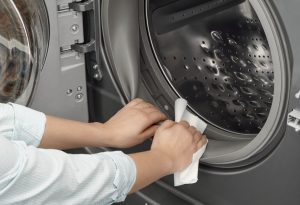1. Double Check Your Warranty
The first thing that you need to do is double check your warranty paperwork. While you may assume that your appliance is out of warranty, you may have forgotten that you took out an extended warranty or received a promotional warranty at the time of purchase. If your appliance is still under warranty, it is likely to be well worth arranging a repair.
If you’re sure your appliance is out of warranty and it is not yet broken, you could purchase home warranty coverage. This can save you money in the event that one of your appliances breaks down.
2. Verify The Appliance Is Broken
Before you panic and start to agonize about whether you should repair or replace your appliance, verify that it is actually broken. Dig out your owner’s manual and go through the troubleshooting steps. It could be a very simple matter of a loose plug, a tripped circuit breaker or a clogged vent. Some appliances have safety features that shut down the power to the unit under certain conditions, such as a clogged filter. Some appliances will even stop working if they are on an uneven floor. So, you will need to resolve the underlying issue to restore functionality.
3. Get Repair Quotes
Before you can make an informed decision, you will need information. You can’t assess if you should repair or replace your appliance until you know the costs involved. You will need a professional opinion about what is wrong with the appliance and the costs of fixing it. Unless you have a trusted repair technician, it is a good idea to obtain more than one quote. Generally speaking, three quotes are a good number, so you can find out if one company is charging far more than the others or seems to lowball their quote.
When you have your quotes, you can do a little math to determine the economic viability of a repair. Typically, if the repair bill is 50 percent or more of the cost of buying a new appliance, it is better to replace it. While the upfront cost will be higher, it will cost less in the long run and you’ll have the benefit of a warranty and possibly improved energy efficiency.
4. Factor In the Appliance Age
It is also important to factor in the age of your appliance. No appliance has an unlimited lifespan, so if your appliance is older, it may be reaching the end of its useful life. Most types of major appliances including washers, stoves, and refrigerators can last 15 years or more, but at the 10 to 15 year point, repairs are likely to be a temporary solution.
You may even have noticed that repair issues keep cropping up with this appliance. So, while the repair cost may be fairly modest this time, if you’ve already shelled out hundreds of dollars over the last couple of years, a replacement is likely to be a better option.
If you’re still having difficulty deciding if you should repair or replace your appliance, try speaking to your trusted appliance repair technician. An experienced technician can explain the underlying issue and provide you with an opinion of whether a repair is economically viable.
